A new survey conducted by Mwelekeo Insights has revealed shifting views among Kenyan men aged 18 to 45 regarding the tradition of bride price.
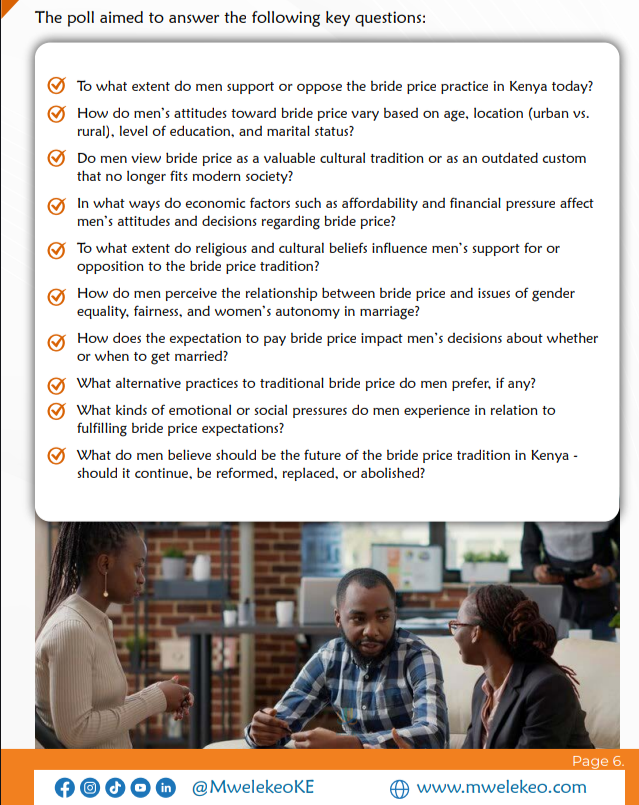
The research set out to understand how men perceive the cultural, economic, religious, and gender-related aspects of bride price in today’s society.
The study aimed to determine whether the tradition still holds strong support or whether it is becoming outdated in the eyes of modern Kenyan men. It also looked into how factors like age, location, education, and marital status affect these views, while exploring men’s thoughts on potential alternatives and reforms.
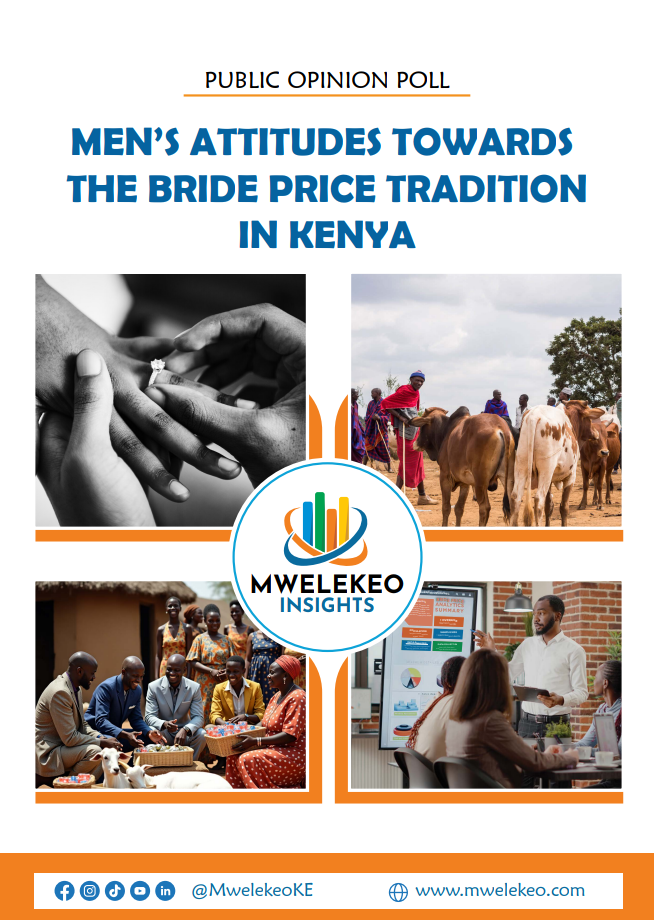
According to the findings by Mwelekeo Insights, 53% of respondents support the bride price tradition, while 47% are against it.
The reasons for support include love, culture, religious values, societal expectations, and the belief that it is a show of respect to the bride’s family. However, opposition is mostly driven by economic pressure, changing societal norms, and the belief that the tradition no longer fits into today’s world.
Among young men aged 18 to 30, support is lower, with only 40% in favour and 60% against.
For men aged 31 to 45, 75% supported the tradition, showing that older men are more attached to the practice.
Location also plays a role, with rural men showing more support than their urban counterparts. In rural areas, 80% of men oppose the tradition while only 20% support it. In urban areas, the opinions were evenly split, with 50% supporting and 50% opposing.
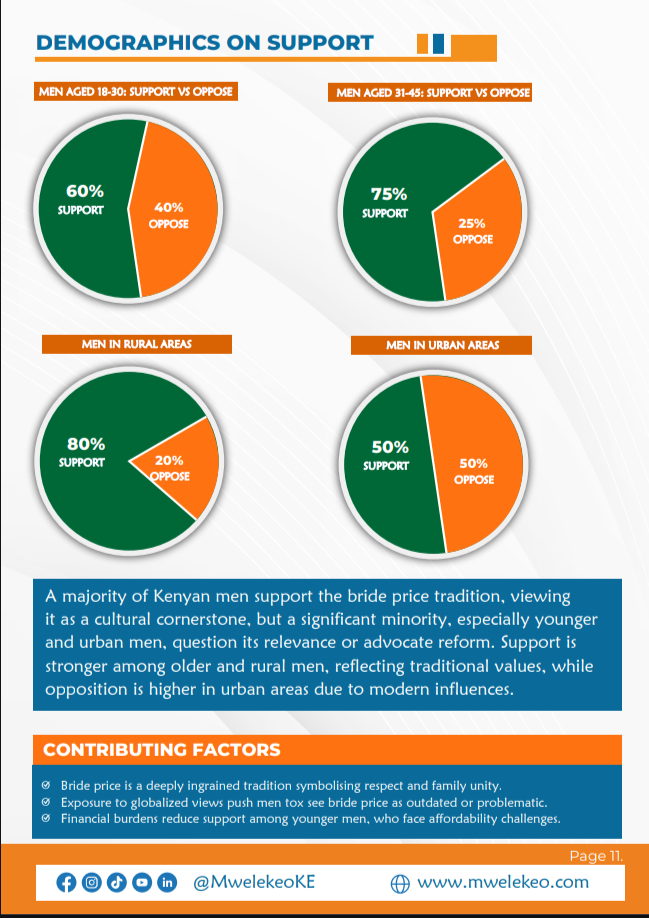
The cultural relevance of bride price was also questioned. Mwelekeo Insights found that 59% of men still view it as relevant and important, while 41% think it is outdated.
This shows that while the tradition remains respected, there is a large number of men, especially younger and educated ones, who no longer find it fitting for modern relationships.
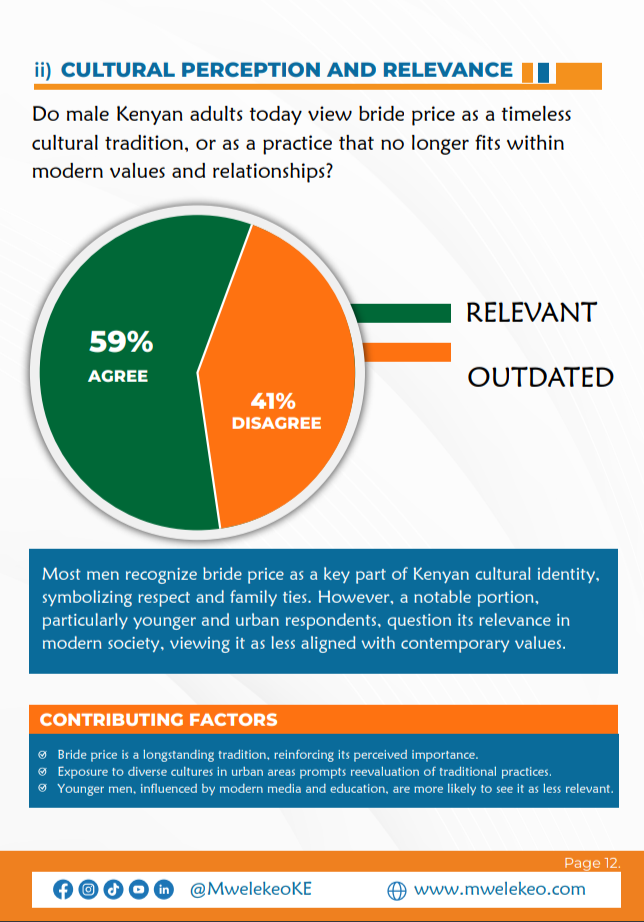
A common reason for this shift is exposure to global cultures and modern education, which has changed the way many young men view traditional practices.
The study further explored economic concerns, revealing that 54% of men agree that financial burdens tied to bride price affect their opinion of the practice.
Bride price, which can include large sums of money or livestock, often strains young men financially. Many respondents said they either delayed marriage or avoided it altogether because they couldn’t afford bride price.
These views were stronger among unmarried men, 58% of whom said the cost of bride price affected their marriage decisions. Among married men, 68% also agreed that bride price played a role in their decision to marry, proving that the pressure exists across the board.
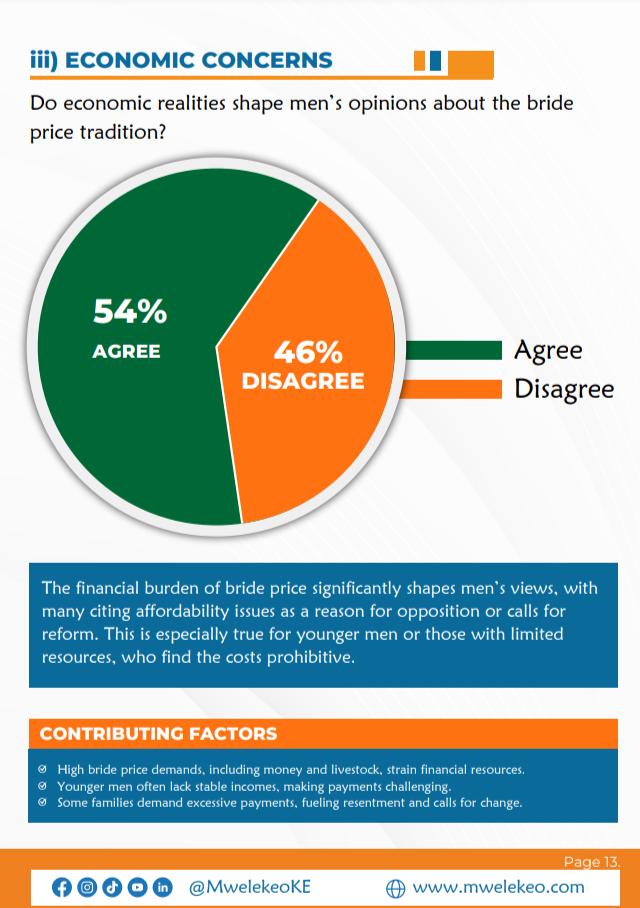
Religious and cultural influences were found to strongly support the tradition. According to Mwelekeo Insights, 66% of men believe bride price is in line with religious and cultural values. Some Christian teachings and traditional practices endorse the act as part of a proper marriage process.
However, 34% of men believe that even religious and cultural norms can adapt to modern times, and that symbolic or less expensive versions of bride price could be acceptable.
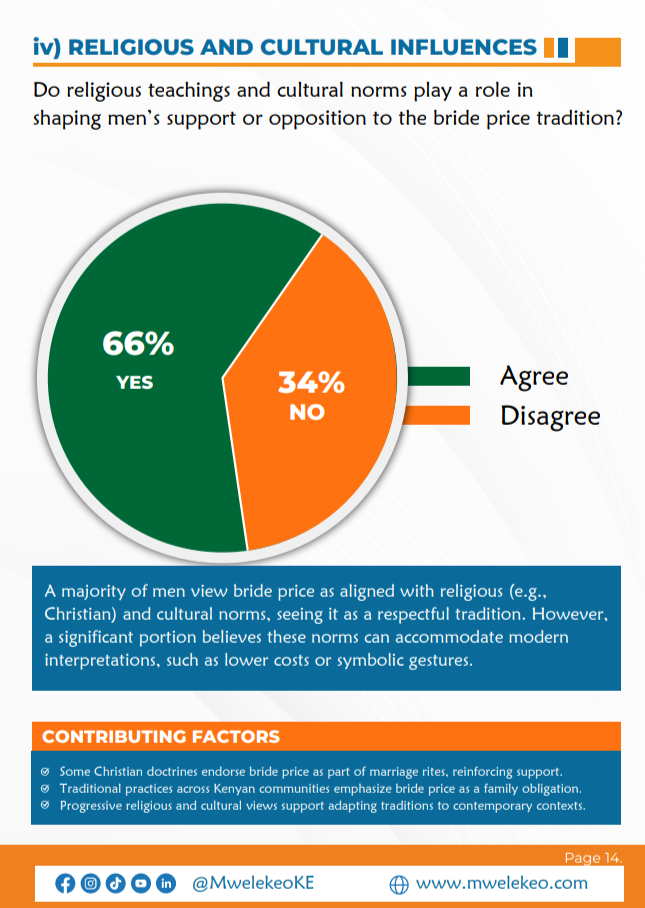
One of the more sensitive areas in the survey was whether bride price undermines women’s autonomy. About 65% of the men agreed that the tradition may commodify women, while 28% disagreed.
This concern was mostly shared by educated and urban men who are more exposed to gender equality discussions. They felt bride price can sometimes make marriage feel transactional and limit women’s independence.
Mwelekeo Insights also asked how bride price affects men emotionally and socially. About 58% of men reported emotional strain caused by the expectation to pay bride price.
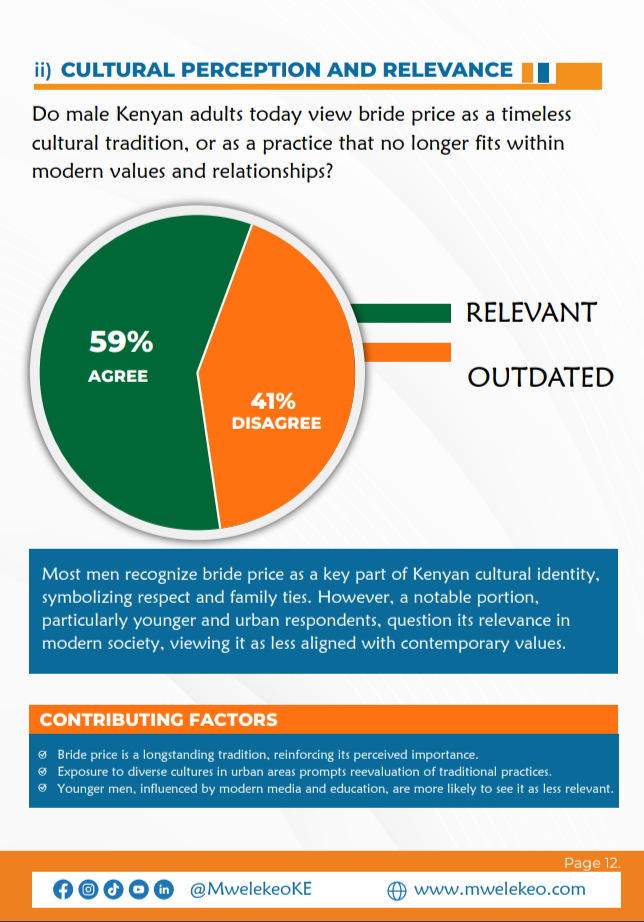
However, only 23% said their social identity was affected by it, meaning most men do not see bride price as part of their masculinity or public image, though a minority still do.In terms of alternatives, the study found that 65% of men support sharing the bride price cost with their wives, reflecting a move toward gender equality.
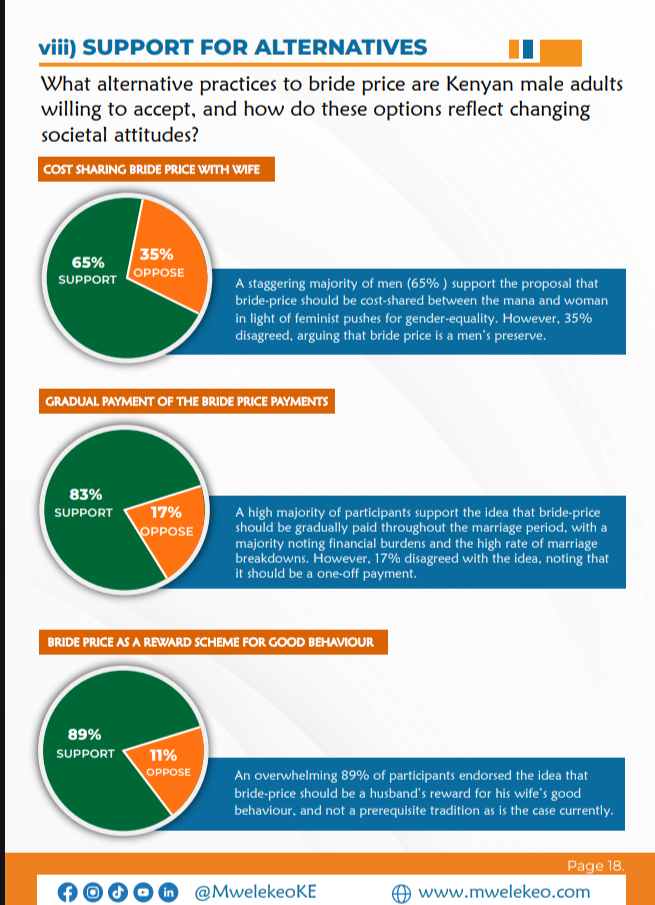
A much larger 83% supported gradual payments over time rather than a one-off payment, acknowledging the financial strain that many couples face.
A surprising 89% said bride price should be seen as a reward for a wife’s good behaviour instead of a mandatory payment before marriage. When asked whether the tradition should be abolished, 48% supported scrapping it altogether, while 52% opposed the idea.
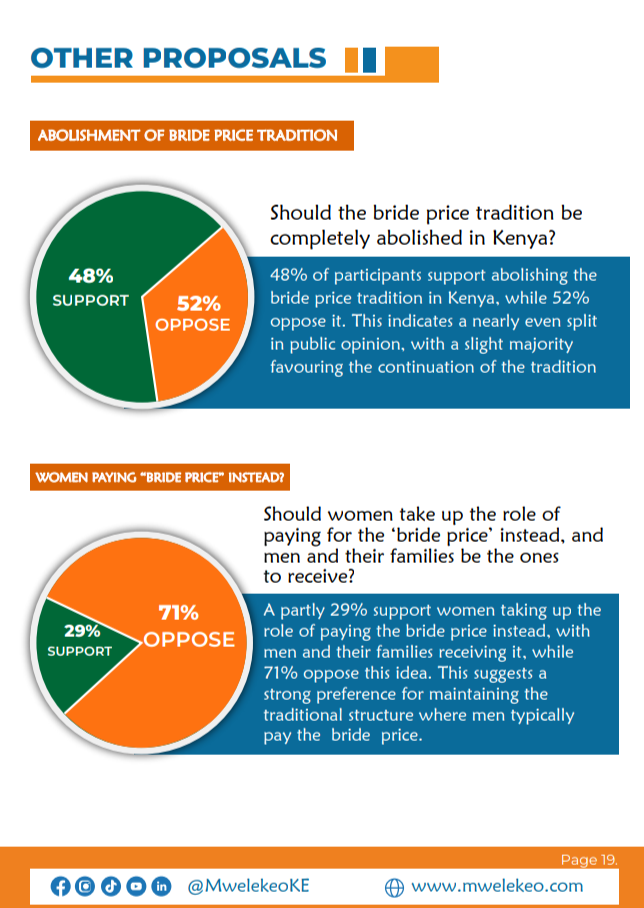
As for women paying bride price, only 29% supported it while 71% rejected the idea, showing strong resistance to reversing traditional roles.
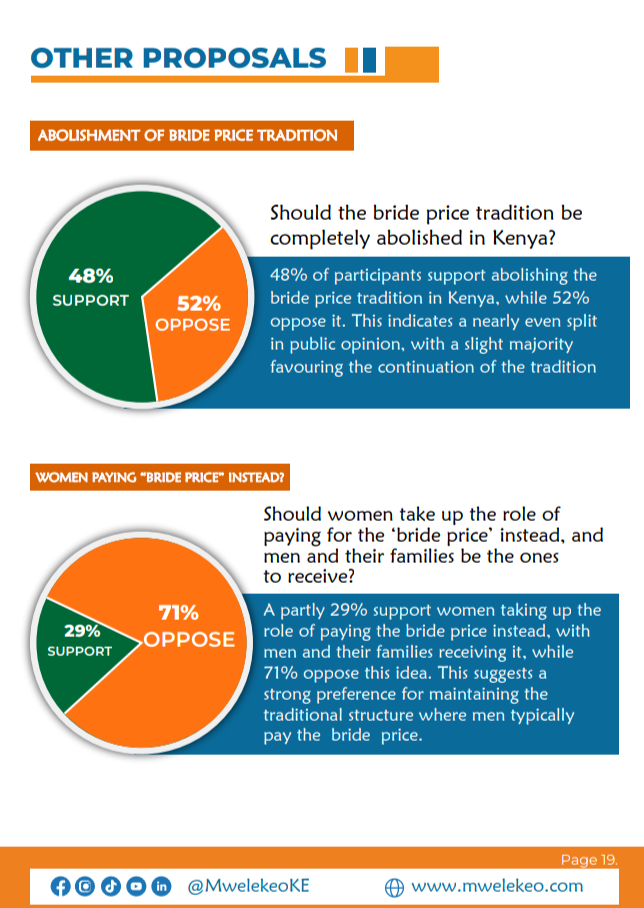
The key takeaway from Mwelekeo Insights is that men’s views on bride price are diverse and strongly influenced by age, education, and location. While many men still value the tradition, others are open to change and want the practice to evolve with the times.
Most are not calling for a full elimination of bride price but are suggesting reforms like symbolic gestures or mutual agreements that reduce the financial and emotional burden. The practice remains linked to expectations of masculinity, and men feel pressure from society to prove themselves through it.
Many expressed a desire for open conversations with elders and communities to rethink the practice in a more inclusive and modern way.
Education and awareness about gender equality also influenced men’s views, with many seeing the tradition as potentially harmful to women’s autonomy.
The survey by Mwelekeo Insights shows that the future of bride price in Kenya may lie in reform, not rejection.
For the full information about the survey we urge you to visit there official website to access this survey and and many other.
The Mwelekeo Insights are also available on all social media platforms. On Facebook@MwelekeoKe, Instagram MwelekeoKe, Linkedin @MwelekeoKe, and on X formerly (twitter) @MwelekeoKe.





















Add Comment